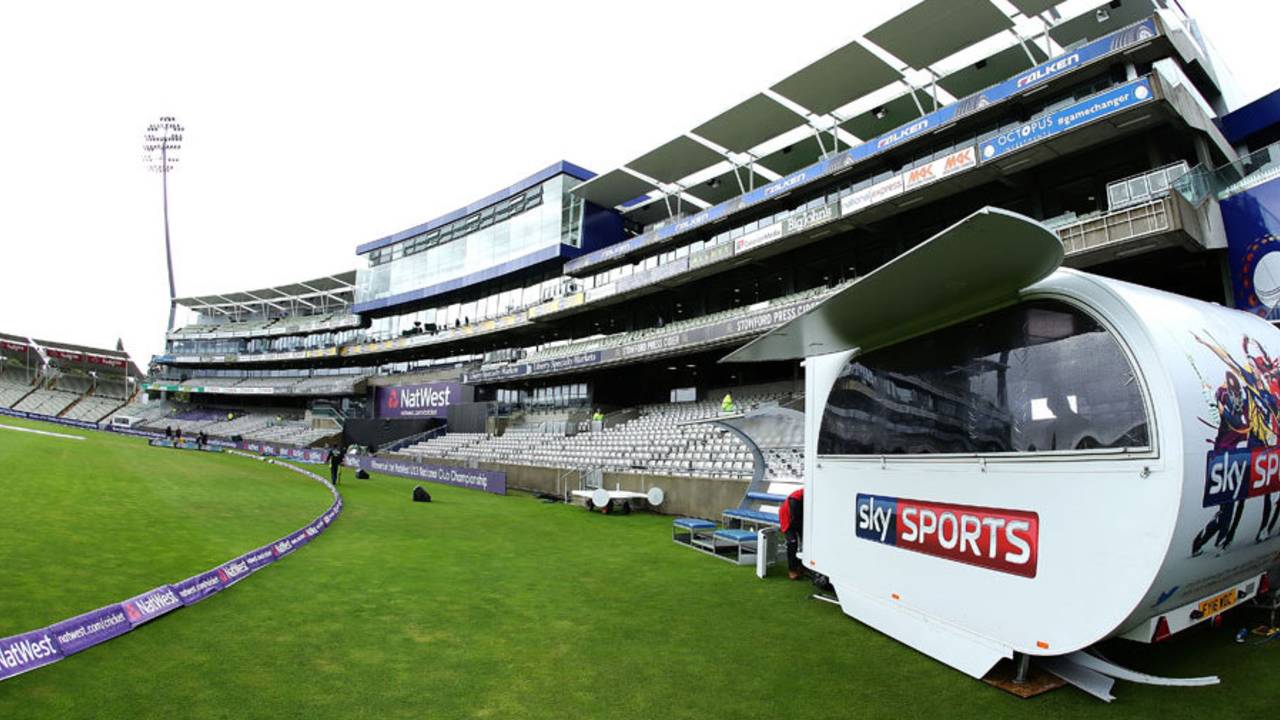As the Big Bash League wallows in praise after another successful year, the financial challenge facing English professional cricket remains as stark as ever as it seeks to increase the capacities of its stadia with an eye to the crowd potential of Twenty20 cricket.
That challenge is illustrated by Warwickshire's financial results for 2015-16, which have just been announced.
Edgbaston has become the accepted home of Twenty20 Finals Day and a once unimpressive ground has been transformed into an appealing 24,000-capacity stadium but it has not been without financial pain.
Warwickshire have reported turnover of £14.3m and an operating profit of £785,761 for 2015-16. That county cricket has the potential to prosper - admittedly thanks to a hefty central contribution from international revenue - is therefore apparent.
But once the paying off of debts, interest, tax and depreciation is taken into account - most of them arising from the £32 million redevelopment of Edgbaston, which was completed in 2011 - the situation is more challenging.
Factor in a payment of £1.1 million to Birmingham City Council to service a loan and the situation worsens. Add depreciation charges of £1.4 million, tax and other costs and the bottom line loss is £2.26m. Quite a difference.
Warwickshire's story is far from unique. Durham needed an ECB bail-out. Yorkshire are desperate to fund the replacement of a dilapidated main stand at Headingley and already have debts of £23m.
The 18 English counties are indebted to a total of £150m-plus and the ECB is sitting on offshore reserves which rose as high as £73m before falling last summer because Test series against Sri Lanka and Pakistan did not attract particularly lucrative TV deals.
Those reserves are jealously guarded. The former ECB chief executive, David Collier, justified the stockpiling as a contingency should the death of the Queen, and a resulting 12 days of mourning, cause heavy financial losses.
Even more disturbing for English cricket would be a shift of the balance between international and club cricket. Should that occur, the English counties would have to become more self-sufficient and only a lucrative T20 tournament can deliver that.
Warwickshire had a relatively successful year in 2016 season. They won the Royal London Cup and attracted more than 80,000 spectators across five days of England's Test victory over Pakistan.
The club also achieved ticket and hospitality sell-outs for its one-day international - England versus Sri Lanka - and NatWest T20 Blast Finals Day.
Off the field, Edgbaston increased its share of the West Midlands' conference and events market by developing year-on-year sales from £2.2 million to a record £2.5 million. Revenue from commercial advertising also increased.
Twenty20 cricket, however, has yet to set Birmingham alight - attendances at Birmingham Bears' home matches in the NatWest Blast are growing but not spectacularly.
That makes it no surprise that the club is strongly in favour of a move to a more marketable new T20 competition based upon the biggest grounds in the country. A 25,000-seater stadium needs to be filled not just for international cricket but for T20, too.
Craig Flindall, Warwickshire's chief operating officer, said: "The 2015-16 financial year was always forecast to be the most challenging in our 2016-2019 financial cycle, and the results are in line with our budgets set at the start of the year.
"The quality and volume of our major match days remains the primary driver of revenue and profit and a significant fall in both was expected in 2016 because of the comparative demand for the Investec Test match against Pakistan.
"However, the transformation in the business since 2010, when England last hosted Pakistan in a Test at Edgbaston, is reflected in the comparison in the results, with turnover and EBITDA [earnings before interest, tax, depreciation and amortisation] in 2016 being £6.5m and £2.4m higher than 2010 respectively."
English cricket is pinning hopes over the next few years on a major financial inflow from the Champions Trophy in 2017 and from the 2019 World Cup. If 50-over cricket is conceding ground to T20, the process is slower at international level where T20 international fixtures are deliberately underplayed. The ECB are desperate that this trend persists for a few years yet.
Flindall captured that mood. "We expect to see EBITDA and bottom line revenues grow significantly over the next three years as Edgbaston hosts up to 28 days of major match cricket," he said. "We have an 11-day programme in 2017, which includes five matches in the ICC Champions Trophy, England's first day/night Investec Test match and NatWest T20 Blast Finals Day."
Beyond the coming season, Edgbaston's major match allocation includes a Test against India, a T20I and T20 Blast Finals Day in 2018, and an Ashes Test match and five matches in the World Cup in 2019.
Financial pressures at Sky TV, however, where Premier League football viewing figures have dropped markedly, will leave the ECB nervous as they conduct negotiations for the next TV rights deal.
Measured against the value of those rights is the recognition that cricket's popularity has waned in the UK as it has disappeared from State schools and free-to-air TV and there has been a shrinking of the amateur game.
Filling Edgbaston for a domestic NatWest Blast fixture will remain a challenge unless there is a major jolt to the system.
At a time of flux in the broadcasting market, there are new markets to be explored, but until that flux settles, and a new TV rights deal is delivered that can sustain the future of English cricket, disquiet will remain.
Warwickshire are an example of that. Most of the 18 first-class counties know the feeling.
David Hopps is a general editor at ESPNcricinfo @davidkhopps
